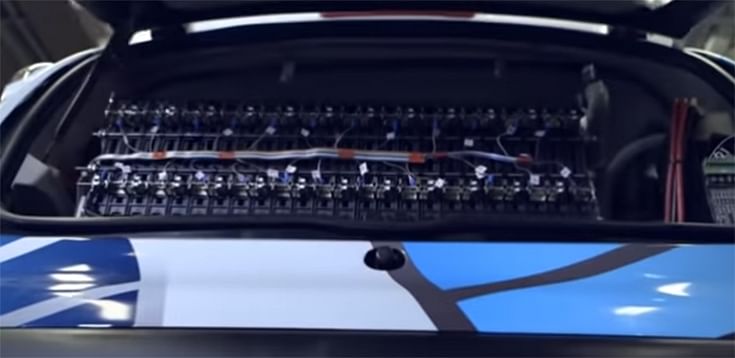Indian Oil to field-test aluminium-air battery with two Indian OEMs
Phinergy claims its air-electrode tech has enabled it to master the metal-air reaction process and develop an aluminium-air system with a lifespan of thousands of working hours
Indian Oil Corporation Ltd (Indian Oil), which is developing an aluminium air battery in collaboration with an Israeli company Phinergy in which it has taken a minority stake and a seat on the Board, is all set to begin field trials with a couple of leading Indian original equipment manufacturers (OEM)s to test the technology's performance in Indian conditions. If the trial proves successful, the company may also venture into battery production in the country.
According to Sanjiv Singh, chairman, Indian Oil, “If you're using this in combination with a very small lithium-ion, the range of a car maybe as high as 600 kilometres, which means you don't require charging”. The aluminium-air (Al-Air) battery does not require charging but replacement of electrodes and electrolytes after a fixed interval. The reload to full energy capacity takes less than five minutes. Singh says Al-Air battery technology complements Lithium-ion batteries to provide a hybrid solution for large-scale adoption of electric vehicles in the country. “Al-air battery technology has advantages on a number of factors like range, energy density, safety of operations, lifecycle," Singh had earlier said in a statement.
The Indian Oil chief said that there would be no requirement for setting up of a charging infrastructure as in the case of an EV. However, replacing the electrodes and refurbishing electrolytes would require an altogether different kind of ecosystem. “Now, apparently it looks very complex, but we are not very disturbed because we are handling similar models in the form of LPG, As in the case of LPG, the company takes care of the entire logistics right from sourcing from a foreign country to supplying it at the doorstep of the customer. Indian Oil may use its large network of LPG supply chain for the same in future.

Phinergy has, some years ago, tested its product on an aluminium air-battery-powered car, a prototype built by Alcoa Canada.
Phinergy specialises in aluminium-air (Al-Air) and zinc-air battery systems that have considerable potential applications in electric mobility and stationary applications. The company has commercial applications in Israel and China.
However, what made Indian Oil jump into the fray is the fact that aluminium, unlike lithium ion, is available in plenty in India and its extraction and recycling technologies are also very well established. The Indian oil and gas giant believes that the development will help in reducing the import dependence of the country and isolates the country's energy requirements from global geo-political and currency risks. Phinergy claims its air-electrode technology has enabled it to master the metal-air reaction process and develop an aluminium-air system with a lifespan of thousands of working hours, relieving the main constraints of electric transportation and clean distributed generation.
Both companies are now in the process of forming a joint venture in India for collaboration for the Al-Air battery system including research and development, customisation, manufacturing, assembly, sale and service of aluminium-air energy systems technology. The joint venture intends to set up a factory in India to manufacture Al-air batteries for EVs and stationary applications and facilitate development of eco-system for Al-Air technology.
Aluminium-air batteries produce electricity by the reaction between aluminium and oxygen available in the surrounding air, thereby making the battery significantly lighter and less costly. Batteries form the single most expensive parts of an electric vehicle.
Industry experts however claim that though the technology has been in the global market since the past few years, it has failed to gain traction due to the high cost of anodes and the cumbersome process of byproduct removal from the electrolytes. However, considerable improvement has taken place since then in this regard.
RELATED ARTICLES
Cosmo First diversifies into paint protection film and ceramic coatings
The Aurangabad, Maharashtra-based packaging materials supplier is leveraging its competencies in plastic films and speci...
JSW MG Motor India confident of selling 1,000 M9 electric MPVs in first year
The 5.2-metre-long, seven-seater luxury electric MPV, which will be locally assembled at the Halol plant in Gujarat, wil...
Modern Automotives targets 25% CAGR in forged components by FY2031, diversifies into e-3Ws
The Tier-1 component supplier of forged components such as connecting rods, crankshafts, tie-rods, and fork bridges to l...






 02 Mar 2020
02 Mar 2020
 26791 Views
26791 Views














 Autocar Professional Bureau
Autocar Professional Bureau




